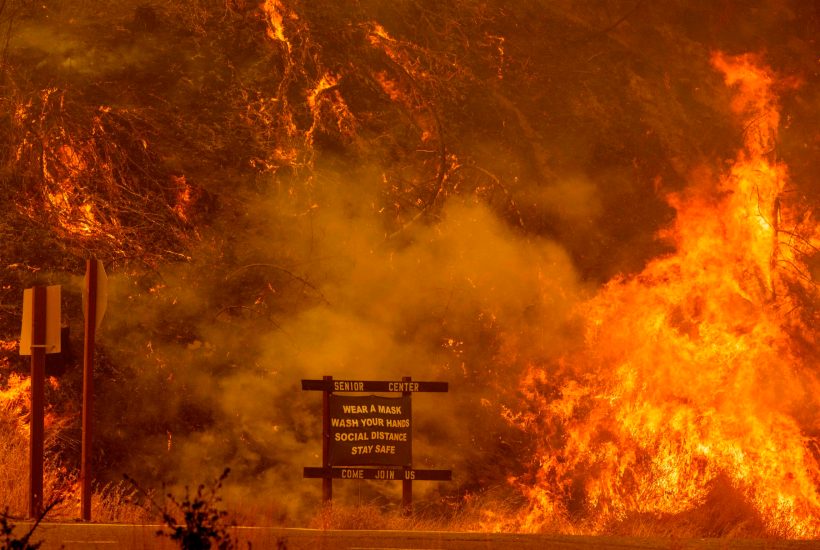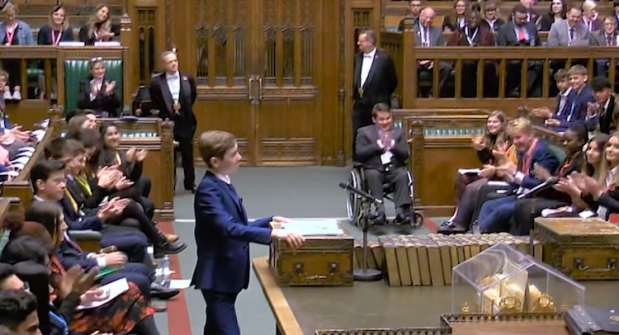I believe it was John Fremont who once exclaimed in astonishment and pride that one could ride his horse at full gallop in the Forests of the Sierras. One will be able to do that once again but it will now not be among the towering conifers but on the ashes.
Right now I’m seeing the mountains I grew up in, where I went to school, where I hung out, camped, backpacked, boated, cheated death, and generally formed the foundation of my character on fire, I’ve gotta say something.
This didn’t have to happen. Once upon a time, forests in California were logged, grazed, and competently managed. It wasn’t always perfect, but generally it worked.
Fires, which are a natural part of that ecosystem, were generally small, and not just benign, but beneficial. Management focused on keeping the forest healthy for all involved, whether they were loggers, ranchers, fishermen, hunters, homeowners, or backpackers.
But then things started to change. Groups like the Sierra Club and National Resources Defense Council began to drive a myopic agenda of protecting environmental interests at all costs. Logging shut down. Grazing was banned. Controlled burning or undergrowth clearance was challenged and subjected to draconian regulation. Fires were put out as quickly and efficiently as possible.
So the trees grew closer and closer together. Undergrowth, unchecked by grazing, cutting, or burning, grew thick and tall enough to reach the branches of mature trees.
The forests became thick and overgrown, but man, they sure looked nice and green from a scenic overlook.
Sawmills shut down, and the cattle business went elsewhere. Thriving towns dried up and nearly went under. We started importing lumber and beef from Brazil and other places with objectively horrible environmental track records. And the vegetation kept growing.
About ten years ago it seemed we started hitting a critical mass. Forests that once had less than a hundred healthy trees per acre now have over a thousand. Manzanita, dry grass, and other plants cover the forest floor so densely you can’t walk through it without cutting a trail. All of this vegetation is fighting over a water table that is stressed on an average year, let alone a drought year, and not a lot of the trees are healthy enough to be resilient. Bark beetles and other pests came in, and you began to see entire mountainsides covered in dead and dying trees.
Fire is a constant in the mountains of California. There’s always plenty from dry summer thunderstorms. But now that spark, whatever caused it, seeds a landscape overloaded with dead trees and dry ladder fuels. And every year it gets worse.
So here we are in 2020, living in a year that can already be generously described as an unmitigated shitshow, and fire is destroying the place where I grew up. Family of mine that ain’t blood are losing their homes and their livelihoods, luckily they’ve so far kept their lives. Right now the projected containment date for this monster named the Creek Fire is five weeks away, and only God knows how much will be destroyed before the fall rains and early snows finally quench the flames. Those mountains will never be the same, an entire community is being destroyed and no matter how hard those amazing people work to rebuild, it will be decades before the land they live on, in some cases for generations, recovers.
Because loggers weren’t allowed to thin overcrowded stands of trees.
Because grazing animals weren’t there to thin out the undergrowth.
Because anytime the Forest Service or large landowners tried to start a project to manage the land, they got tied up in court and buried under years of environmental impact ‘studies.’
Because any fire, regardless of cause or location, was put out as quickly as possible for decades.
Because any controlled burns were restricted by overzealous and shortsighted pollution thresholds set by the CA Air Resources Board.
Because politicians and bureaucrats stopped listening to the people that actually, like, lived in the forest.
And all of those things happened because hypocritical, short-sighted, well-meaning morons at organizations like the Sierra Club and the National Resources Defense Council managed to get a stranglehold on state politics and courts. Because of ‘concern for natural conditions’ we’re in this mess. Because of a myopic focus on certain species, entire ecosystems are being overtaken by flames. But they’ll never accept responsibility.
They persist in blaming fire conditions in today’s West solely on climate change. Even if every single thing that they claim about climate change were to be true, it wouldn’t undo the consequences of decades of mismanagement driven by their ‘advocacy.’
The absurd fuel load brought about by overgrowth is a direct result of policies and case law brought about by these organizations and their ‘concern for the environment.’ And that fuel load is killing the mountains I called home, in every sense of the word.
You like hugging trees? They’re gone now. You love the spotted owl? Here’s some for ya, extra extra crispy. Concerned about erosion? Get ready for some serious mudslides this winter with all of the grass and smaller plants burned off. Worried about particulates from a controlled burn? Wildfires generate orders of magnitude more.
The Environmentalists have killed the environment they said they wanted to save. In their hubris, they deluded themselves into believing that they were right and just, and any opposition to their enlightened, stunning and brave activism, was reactionary wrongthink brought about by greedy capitalists or ignorant slack-jawed yokels who needed help from their betters to get by.
I live in Kansas now, where people are generally saner. But my heart still calls those mountains home. And they were killed by the Sierra Club and its allies. God may forgive you, but it’s gonna take me a minute.
Got something to add? Join the discussion and comment below.
Get 10 issues for just $10
Subscribe to The Spectator Australia today for the next 10 magazine issues, plus full online access, for just $10.




















Comments
Don't miss out
Join the conversation with other Spectator Australia readers. Subscribe to leave a comment.
SUBSCRIBEAlready a subscriber? Log in